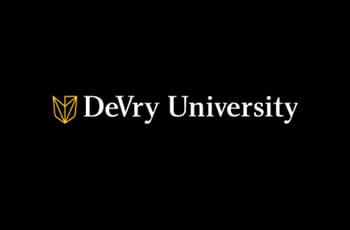Explore web search results related to this domain and discover relevant information.

A bachelor's degree in the USA typically takes four years to complete, with options to start at a community college. Learn about the different degree types and pathways.
So, here’s the answer, and that is: it typically takes four years to complete, but several different routes and degree types may affect this timeline. Check out: What is the Green Card Lottery in the US? Check Key Details and Facts · In the U. S., a bachelor’s degree is an undergraduate academic degree that is awarded by colleges and universities upon completion of a course of study.A.A.S. (Associate of Applied Science): This degree offers more vocational training and is aimed at those who wish to join the workforce after two years. Although U.S. colleges offer a diverse range of bachelor’s degree programs that resonate well with students having different interests and career goals.Unlike many countries, the U.S. does not offer any law or medical degrees at an undergraduate level. So, students who are interested in these fields must first complete their bachelor’s degree and then apply to graduate or professional schools.A.A. (Associate of Arts) and A.S. (Associate of Science): These degrees are made for students who are planning to transfer to a four-year college and complete their bachelor’s degree.
Explore 100+ online bachelor's degrees from ASU Online. Earn your online undergraduate degree from the same prominent faculty who teach on campus.
Students pursuing an online bachelor’s degree also have the option to choose a minor or undergraduate certificate to complement their program of study.Ranked in the Top 10 for best online bachelor’s programs by U.S. News & World Report, 2025, Arizona State University offers a variety of online undergraduate programs.Watts College of Public Service and Community Solutions

What is a Bachelors degree? Discover more about this versatile qualification that opens doors to further education and career opportunities.
Typically awarded by universities and colleges, a Bachelor’s degree opens up opportunities for graduates to either continue on to further study or enter the workplace. It covers a broad spectrum of disciplines, from humanities and social sciences to science, technology, engineering and more.A Bachelor’s degree is an undergraduate academic qualification awarded by a wide variety of universities and colleges after the completion of a specific course of study. The courses usually last three to four years when studied on a full-time basis.It provides foundational knowledge and skills in a particular field and is often a prerequisite for many professional careers or further education, such as an MA degree. In the UK, a Bachelor is classified as a Level 6 qualification under the Regulated Qualifications Framework (RQF) and the Framework for Higher Education Qualifications (FHEQ).It’s an undergraduate degree, normally completed after secondary education, and sits above Level 3 qualifications such as A-levels or BTECs but below postgraduate qualifications like MA degrees (Level 7) and Doctorates (Level 8). There are several types of Bachelor’s degrees, each focusing on different fields of study.
When compared to traditional bachelor’s degrees, these four-year Bachelor of Applied Science (BAS) degrees incorporate more applied, hands-on learning focused on a particular industry and include strong internship components.
Seattle Colleges—Seattle Central College, North Seattle College, and South Seattle College—are committed to providing a wide range of relevant educational opportunities. Today, we offer the following bachelor’s degrees.This program is designed for students with a two-year degree in social and human services, child and family studies, interpreting services, or a related degree. ... If you are a healthcare professional with strong interpersonal and problem-solving skills and a desire to help others, Seattle Central’s Bachelor of Applied Science (BAS) in Allied Health: Community Health and Education program may be right for you.With this degree, you will receive the education and training needed to promote health and prevent disease within communities. ... The Bachelor of Science (BS) in Computer Science degree covers a wide range of critical knowledge and skill-building areas including the design and usability of software and computing systems, effective team collaboration, information technology leadership, and preparation for advanced learning in computing, science, engineering, and other professional fields.The Early Childhood Education Bachelor of Applied Science (BAS) degree provides an opportunity for students who have completed an associate degree in Early Childhood Education or a related program to continue their studies and earn a Bachelor of Applied Science degree.
Uncover what a bachelor's degree is and discover what program is right for you. See how our engaging online programs at DeVry can fit into your schedule.
A bachelor's degree is the highest level of undergraduate degree and can typically be completed in approximately four years, depending on the institution. Bachelor's degrees cover a particular discipline of your choosing and include coursework consisting of a mixture of required general education courses, program-specific courses and electives.On this page we’ll cover the different types of bachelor’s degrees, how a bachelor’s degree differs from other academic degrees, the benefits of a bachelor’s degree and the typical prerequisites for enrolling in a bachelor’s degree program.BS degree coursework often focuses on logic, reasoning and quantitative skills, with more courses in subjects related to math, science and technology. The academic areas of BS majors include natural sciences, healthcare, mathematics and technology and engineering. To earn a Bachelor of Fine Arts (BFA) degree, students learn about the history, skills, methodology and industries associated with the artistic field of their choice.BFA degree majors include visual and performing arts, film and writing. When mapping out your academic plan, the type of bachelor’s degree you pursue— BA, BS or BFA—is often not as critical as you might think. What’s more important is that you choose the major that aligns with your personal and professional goals.


A graduate degree is an advanced qualification pursued after a bachelor's, offering specialized learning, career advancement, and higher salaries. Learn about the types and benefits of pursuing a graduate degree.
Not exactly. A master’s degree is a type of graduate degree, but the term "graduate degree" also includes PhDs and professional doctorates. The common thread is that all graduate degrees require a bachelor’s degree as a prerequisite.A graduate degree refers to an advanced academic qualification that students pursue after earning a bachelor’s or undergraduate degree.These degrees allow you to go further for specialised learning programs in particular fields or subjects that will probably enhance your career prospects, will open your doors to higher-paying jobs, and also will serve as a pathway to further academic research.Now, why do you think a graduate degree is important? So, graduate degrees are designed for individuals who basically want to have an in-depth expertise, seeking a position in a new professional field, or want to advance their careers.
Earn your accredited Bachelor's Degree online at Ashworth College. Study from home at your convenience. Affordable tuition. Enroll now.
The time and money required to earn a Bachelor’s Degree create a barrier for many people. Ashworth College is different.When you earn your Bachelor’s Degree with us, you fit your studies around your busy life, boost your earning potential with new—and benefit from some of the lowest tuition costs anywhere.8 displayed Business Administration Bachelor's Degree Criminal Justice Bachelor's Degree Early Childhood Education Bachelor's Degree General Studies Bachelor's Degree Healthcare Management Bachelor's Degree Management Bachelor's Degree Marketing Bachelor's Degree Psychology Bachelor's Degree


Arthur Ross first enrolled at the University of British Columbia in 1969. He just graduated.
More than five decades after he began his studies, Arthur Ross finally walked across the stage at the University of British Columbia (UBC) on Thursday to receive his Bachelor of Arts degree.After retiring from a 35-year career in law, Arthur Ross decided it was time to go back to school and finish the bachelor's degree he started in 1969He also may be the slowest in the world. It took him precisely 54 years to finish his degree - two years longer than the Guinness World Record holder, Robert FP Cronin, who began his biology degree at Princeton University in 1948 and graduated in 2000.After six years of working on his degree, Mr Ross said he was excited to walk across the stage and mark his accomplishment.

Bachelor's degrees are four-year undergraduate qualifications awarded after completing 120 credits of structured academic study. Bachelor’s degrees build
Bachelor’s degrees are four-year undergraduate qualifications awarded after completing 120 credits of structured academic study. Bachelor’s degrees build foundational knowledge, critical thinking and prepare students for employment or graduate education.Bachelor’s degree programs include general education, major-specific courses, and electives across disciplines such as business, science, and humanities, where the degree itself is the overarching credential and the major defines the focused academic area.A bachelor’s degree typically requires a high school diploma, minimum GPA, standardized test scores, and accredited prior education for entry, while graduation depends on completing core credits, maintaining GPA of 2.0 in most programs and fulfilling major, elective and experiential components like internships or capstone projects.A bachelor’s degree is an undergraduate qualification awarded by colleges and universities after completion of a prescribed course of study, usually completed in 4 years. A bachelor’s degree represents the first level of education in higher education following secondary school and results from completing structured academic requirements.
Choose from 30+ online bachelor's degrees from the accredited University of Maryland Global Campus. Earn a degree in accounting, biotechnology, data science, and more.
Pursuing your bachelor’s degree is a big step in your educational, working, and life experience. University of Maryland Global Campus is here to help you earn your degree as easily as possible. Choose from more than 30 bachelor’s degrees, many in high-demand subject areas.You’ll develop skills and knowledge you can apply on the job right away, and most of our bachelor’s degree programs are rounded out by a capstone course or seminar experience that allows you to put your knowledge into practice.With a variety of online bachelor’s degrees to choose from, and scholarships, financial aid, and a number of ways to earn transfer credit, UMGC is a great choice for the next step in your education journey.U.S. employees with bachelor's degrees earned a projected $27,248 more in median earnings than their counterparts whose highest credential was their high school diplomas in 2020. Source: Elka Torpey | "Education Pays, 2020," Career Outlook, U.S.

A bachelor's degree (from Medieval Latin baccalaureus) or baccalaureate (from Modern Latin baccalaureatus) is an undergraduate degree awarded by colleges and universities upon completion of a course of study lasting three to six years (depending on the institution and academic discipline).
In some institutions and educational systems, certain bachelor's degrees can only be taken as graduate or postgraduate educations after a first degree has been completed, although more commonly the successful completion of a bachelor's degree is a prerequisite for further courses such as a master's or a doctorate.In countries with qualifications frameworks, bachelor's degrees are normally one of the major levels in the framework (sometimes two levels where non-honours and honours bachelor's degrees are considered separately). However, some qualifications titled bachelor's degree may be at other levels (e.g., MBBS) and some qualifications with non-bachelor's titles may be classified as bachelor's degrees (e.g.The term bachelor in the 12th century referred to a knight bachelor, who was too young or poor to gather vassals under his own banner. By the end of the 13th century, it was also used by junior members of guilds or universities. By folk etymology or wordplay, the word baccalaureus came to be associated with bacca lauri ("laurel berry"); this is in reference to laurels being awarded for academic success or honours. Under the British system, and those influenced by it, undergraduate academic degrees are differentiated between honours degrees (sometimes denoted by the addition of "(Hons)" after the degree abbreviation) and non-honours degrees (known variously as pass degrees, ordinary degrees or general degrees).An honours degree generally requires a higher academic standard than a pass degree, and in some systems an additional year of study beyond the non-honours bachelor's. Some countries, such as Australia, New Zealand, South Africa and Canada, have a postgraduate "bachelor with honours" degree.

And perhaps you are wondering whether there are differences between BS and BA degree programs, or whether a BS is “better” than a BA (or vice versa). This article explores some general differences between Bachelor of Science and Bachelor of Arts degree programs as well as exceptions to ...
And perhaps you are wondering whether there are differences between BS and BA degree programs, or whether a BS is “better” than a BA (or vice versa). This article explores some general differences between Bachelor of Science and Bachelor of Arts degree programs as well as exceptions to these general rules.BA degree program. Estimate Your Tuition and Graduation Date Estimate Your Tuition ... A Bachelor of Science degree, or BS degree, is an undergraduate degree “which usually signifies that the recipient has done the greater part of his or her course work in the sciences with some specialization in a particular science.”1 BS degrees are also commonly conferred in mathematics and technical fields (e.g., information technology (IT)).Generally speaking, compared to BA degree programs, BS degree programs tend to require completion of more courses specifically tied to the student’s chosen field of study, leaving students less room to pursue elective courses. These programs emphasize the development of technical skills and knowledge and may include lab course requirements. ... A Bachelor of Arts degree, or BA degree, is an undergraduate degree “which usually signifies that the recipient has passed a certain number of courses in the humanities.”2 BA degrees are often conferred in liberal arts fields.You can pursue a BS or BA degree program regardless of whether you already have an associate degree or have never attended college before. And both can help you prepare to pursue a master’s degree in the future. But if your question is whether a Bachelor of Arts or a Bachelor of Science is the better degree for you, the answer perhaps is not so clear.
Earn an accredited, tuition-free online Bachelor’s degree in Computer Science. Our affordable program is designed to fit your schedule. Join 150,000 students today!
Gain in-demand skills to join one of the fastest growing fields in the world and learn the latest in programming, software, and computing technology. Whether your goal is to rise to the top of the tech industry, or lay the foundation for an advanced degree, you can do it all with a Bachelor of Science in Computer Science from UoPeople.This degree is perfect for working professionals who want a strong foundation in computer science or hope to pursue an advanced degree in the future. Take your career to the next level with a valuable skillset: Apply skills to debug, code, and test new programming solutions · Manage design projects from conception to implementation ... Anyone who has a high-school education and is 16 years of age or older can study online at UoPeople. The curriculum for the Bachelor’s in Computer Science has been crafted to provide students with in-depth computer knowledge and technical skills.Bachelor of Science in Computer Science graduates can pursue roles such asDatabase Administrators, Software Developers, Computer Systems Engineers, and Web Designers, among others. Some UoPeople alumni have found success with positions at leading global organizations such as Amazon, IBM, Microsoft, Deloitte, AT&T, Dell, etc. UoPeople's unique, tuition-free model makes it possible to start earning a high-quality, American degree for just $60, and pay as you go without financial commitments.UoPeople does not charge for tuition, books, or campus expenses. You’ll never have to pay fees for courses upfront. We charge only a $60 application fee, and a $160 assessment fee at the end of each course. This is a huge savings compared to U.S. public universities who charge on average $22,389 for a bachelor's degree.

Consulting and marketing ranked among the fastest-growing career paths for candidates without a bachelor's degree, per new research from LinkedIn.
The number of jobs requiring any degree beyond a high school diploma has been steadily declining since the start of the Covid-19 pandemic, according to recent research from ZipRecruiter. By 2030, the Bureau of Labor Statistics projects that about 60% of all new jobs in the economy will be in occupations that don't require an associate, bachelor's or graduate degree.To find the industries where opportunities are growing most for candidates without bachelor's degrees, data scientists at LinkedIn analyzed millions of member profiles and descriptions of job postings shared on the platform between 2021 and 2023.For this report, a "non-bachelor's graduate" was defined as someone who graduated from high school, has an associate's degree or completed an apprenticeship to train for a job.Hiring for consulting roles has seen significant hiring growth for candidates without a bachelor's degree in recent years, up 34% between 2021 and 2022.
Your path to a bachelor's degree has never been easier - or more affordable. Learn about the four-year degree programs available to you at Seattle Central College.
Seattle Central is one of several community and technical colleges in Washington state that offer Bachelor of Applied Science degrees. Historically, community colleges have offered only two-year degrees. However, in a growing number of fields, a bachelor’s degree is the minimum level of education required to obtain employment.In response, Seattle Central has developed four–year programs that build on certain associate degrees currently offered and more are in the works. Seattle Central is accredited by the Northwest Commission on Colleges and Universities to confer four–year Bachelor of Applied Science (B.A.S.) degrees.These “applied” degrees build on associate degrees and provide workplace skills in specific career areas. Compared to traditional four–year degrees at universities, applied bachelor's degrees incorporate more hands–on learning focused on a particular industry.Our bachelor’s degrees are structured in what’s called a “2 + 2” format.
College student studying in a library with books and a ...
A bachelor’s degree—sometimes called a baccalaureate—is an undergraduate degree in which you gain generalized knowledge over your first two years of study and then select a college major to gain additional in-depth knowledge.Bachelor of Arts (BA): You earn a Bachelor of Arts when you major in the humanities or social sciences, such as history, psychology, English, or communications. The degree typically emphasizes critical thinking and communication skills and is broad enough for you to pursue an array of careers after graduation, like teaching, human resources, advertising, or government work.Bachelor of Science (BS): You earn a Bachelor of Science when you study technology, math, or one of the natural sciences, such as biology, chemistry, finance, or computer science. BS degrees typically emphasize quantitative skills and can be a good way to launch a career in STEM.Online vs. in-person: The average public online bachelor's program tuition costs $40,926 for in-state students and $62,756 for private ones, according to US News—that’s total, not per year [2]. Online degrees eliminate relocation and transportation costs and offer enough flexibility for people who want to work full- or part-time.


See all of our undergraduate college majors. Our 4-year bachelor's degrees, taught from a Christian perspective, are available on campus or online.
Prepare to become a leader in your field with an undergraduate degree from Liberty University.Choose from hundreds of online degrees to earn your degree from anywhere.Nursing Dual Degree (R.N.Residential Academics & Degrees Admissions & Tuition Faith & Service Campus Life Athletics About Liberty Affiliated Websites

Learn about which experiences qualify as equivalent experience to a bachelor’s degree and see examples of how to put this information on your resume or cover letter.
This means you may replace part, or sometimes all, of the educational requirements with the knowledge you possess from work or other experiences in that field or a related field. In this article, we discuss bachelor's degrees, their equivalency and examples of putting this information on your resume or cover letter.If you don't have the requested college degree but have sufficient equivalent experience, then it is likely employers or institutions will still consider your application. Here are some examples of job listings where you may see this terminology: Bachelor's degree required, master's degree preferred.In lieu of a degree, 10 or more years of relevant experience may suffice. Bachelor's degree preferred.U.S. bachelor's degree required or its equivalent from another country.Allowing candidates who posses the required knowledge through other experiences besides college provides employers with a much larger pool of candidates to choose from. It's the candidate's responsibility to provide evidence and clearly demonstrate that they have the required knowledge and skills.
Learn everything you need to know about bachelor's degrees including what they are, the different types of bachelor's degrees available, and how they differ.
Going to college is something many people talk about, but what does it actually mean? For many people, it means seeking a bachelor’s degree: a four-year program that deepens their skills, expands their knowledge and prepares them for a variety of career paths.Here, we explore the ins and outs of this degree. A bachelor’s degree is typically a four-year program of university study that is comprehensive in nature and grants exposure to general study topics while in the pursuit of documented competency in a specific content area of study.An estimated 14.3% of adults had an advanced degree in 2021, such as a master’s or doctoral degree, up from 10.9% in 2011, according to the U.S. Census (2021). More specifically, 23.5% of adults age 25 and older had a bachelor’s degree listed as their highest degree.Have you already earned more than 60 semester college credits or hold at least one associate degree? Sometimes these credits can be transferred and applied to a bachelor’s degree program to save you time and money.

School of Arts, Humanities and Social Sciences | Bachelor's Degrees
School of Health and Sports Sciences | Bachelor's DegreesBachelor Degrees, recognized undergraduate programs of six different schools from New York College in collaboration with leading universities in USA and Great Britain







